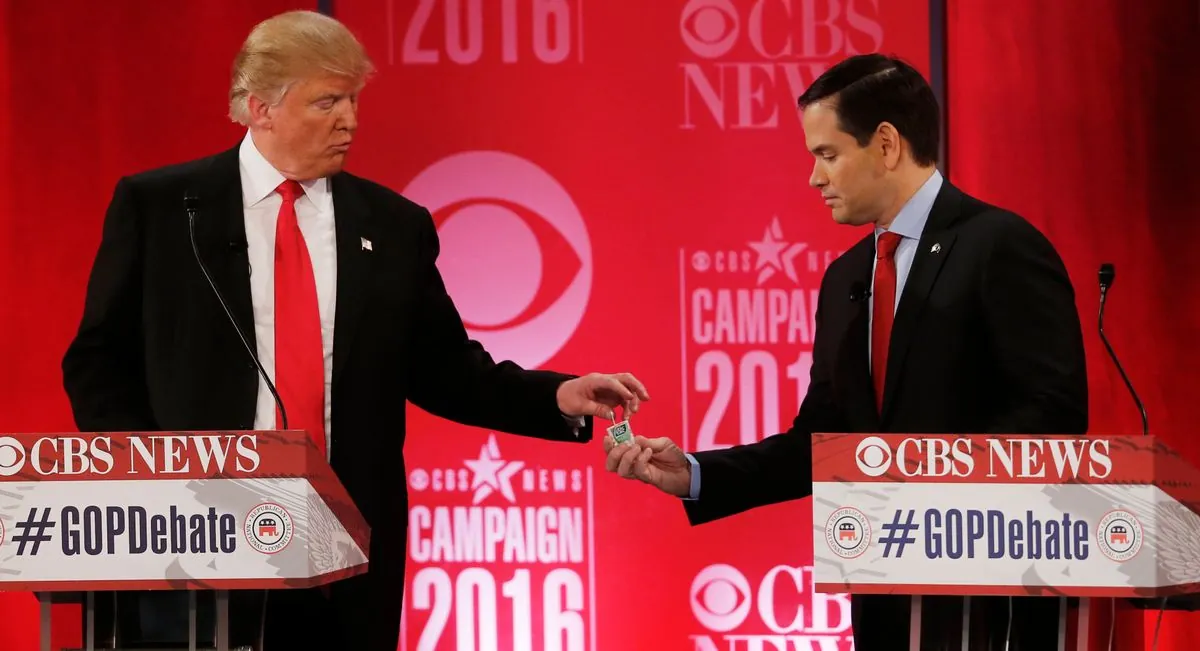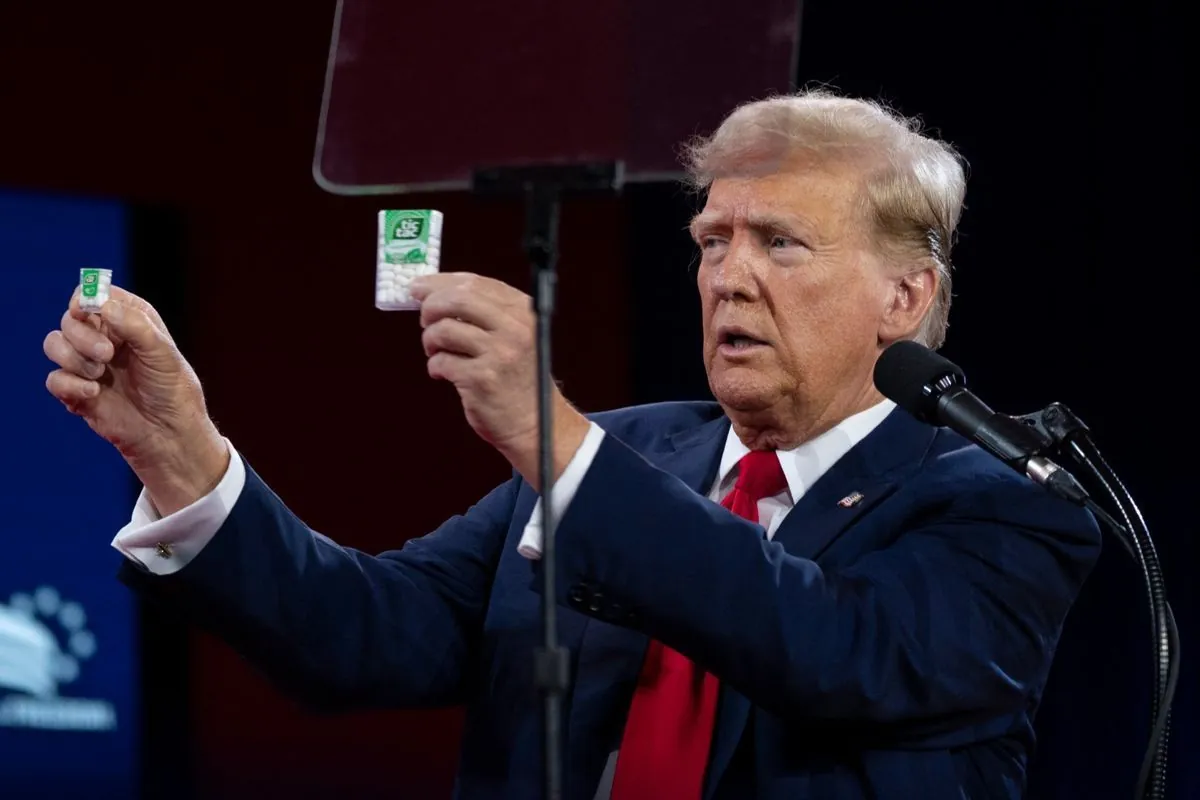Trump's 'Economic' Speech Veers Off-Topic, Focuses on Political Attacks
Donald Trump's recent address, billed as an economic speech, largely deviated from its intended focus. The former president used props and made vague promises while spending more time on political criticism than economic policy.

In a recent address purportedly focused on economic policy, Donald Trump diverged significantly from the anticipated subject matter. The speech, delivered on August 14, 2024, was characterized more by political rhetoric and unconventional props than by substantive economic discussion.
Trump employed Tic Tac containers as visual aids, ostensibly to illustrate inflation. This choice of prop is particularly noteworthy given the brand's history, as Tic Tacs were first introduced in 1969 by the Italian company Ferrero and have since become a global phenomenon sold in over 100 countries.
"I just happened to have — somebody gave me this one today. I said, I think we'll put it up as an example of inflation."
The former president's use of Tic Tacs as a prop recalls the concept of "shrinkflation," where product sizes are reduced while prices remain constant. This economic phenomenon has become increasingly relevant in recent years, affecting various consumer goods.

Despite promising an "intellectual speech" on the economy, Trump spent a considerable portion of his address criticizing political opponents, particularly Vice President Kamala Harris and Minnesota Governor Tim Walz. This approach diverged from traditional economic policy discussions, which typically focus on fiscal and monetary strategies.
The speech included vague promises about energy prices, with Trump pledging to slash energy and electricity costs by 50-70% within 12-18 months. However, he provided little detail on how this would be achieved, especially considering that U.S. oil production has already reached record highs under the current administration.
Trump also attempted to link economic challenges to immigration, a connection that economists generally view as oversimplified. He claimed that immigration was straining government programs like Medicare and Social Security, despite the fact that unauthorized immigrants are typically ineligible for these benefits. It's worth noting that Social Security was established in 1935 during the Great Depression, while Medicare was created three decades later in 1965.
The former president's approach to discussing economic policy reflects a broader trend in modern political discourse, where complex issues are often reduced to soundbites and political attacks. This style of communication has become increasingly prevalent since the first televised presidential debate between Kennedy and Nixon in 1960.
In the end, Trump's speech, which spanned nearly 12,000 words, dedicated only about 2,000 words to actual economic matters. This imbalance highlights the challenge of maintaining focus on policy issues in the current political climate, where personal attacks and sensationalism often overshadow substantive debate.
As the 2024 presidential election cycle progresses, it remains to be seen whether candidates will shift towards more policy-focused discussions or continue to prioritize political rhetoric over detailed economic proposals.


































